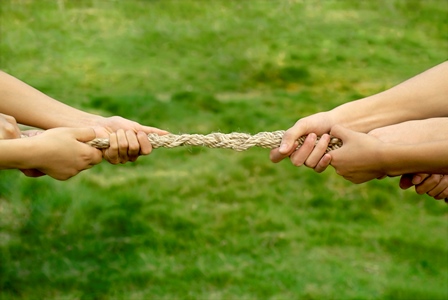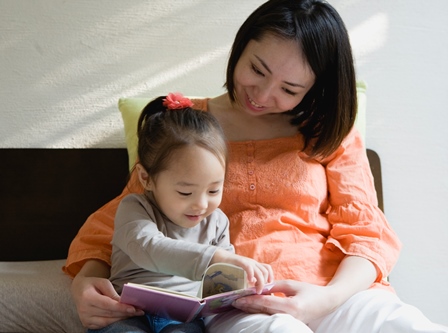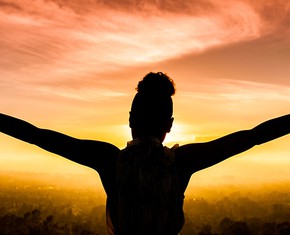The views expressed in our content reflect individual perspectives and do not represent the authoritative views of the Baha'i Faith.
 I’ve always believed in the equality of women and men. As members of the Baha’i Faith, it was one of the basic principles taught to me by my parents from an early age.
I’ve always believed in the equality of women and men. As members of the Baha’i Faith, it was one of the basic principles taught to me by my parents from an early age.
Baha’u’llah, the Prophet Founder of the Baha’i Faith explained,
“Women and men have been and always will be equal in the sight of God” (A Compilation on Women, pp. 21-22).
In the Baha’i Writings, women and men are compared to the two wings of a bird. If one wing is allowed to remain weak, the bird will not fly. It is not until both wings are fully developed that the bird will be able to fly. Similarly, not until both women and men are able to develop to their full capacity will the prosperity of the world be possible.
While growing up, I saw equality everywhere — young boys and girls running around playing sports together, girls participating freely (and often more) in class discussions and a graduating class with nearly an equal division of men and women. Gender equality was so ingrained into my reality that I didn’t realize until later in life that I didn’t actually know what equality really meant.
It didn’t occur to me until college that having women at the forefront of my high school classes did not, in fact, mean that we had equality. That just because both boys and girls ran around and played sports didn’t negate the fact that most times the girls were chosen last and our skills underestimated or that having a graduating class split evenly across gender lines didn’t guarantee that the girls would have equal access to jobs or equal pay for equal work once we entered the work force.
I failed to realize that just because young men and women had equal access to resources and opportunities in my small sphere this was not indicative of the reality of the world at large. Even though there were signs of gender equality around me, especially when looking with the assumption that everyone had been brought up with the similar knowledge that women and men were equal, it became clear to me that inequality has become embedded into our institutions and thought processes and, in order to combat that inequality, we would have to understand why equality even matters and what understandings of this equality would be necessary to see it in practice.
 I have found that the problem with our understanding of equality is based on the idea of advancing women to the same state as men. This does two things. One, it assumes that men are done advancing; that they are in their finished form just as they are now. Two, it creates a power struggle between the genders, making it so that men have the power and they have to relinquish it so that women can have some as well (or women should fight to gain more power than men). This creates an unnecessary dichotomy between the genders. Using material standards to understand equality can often times be limiting for both men and women.
I have found that the problem with our understanding of equality is based on the idea of advancing women to the same state as men. This does two things. One, it assumes that men are done advancing; that they are in their finished form just as they are now. Two, it creates a power struggle between the genders, making it so that men have the power and they have to relinquish it so that women can have some as well (or women should fight to gain more power than men). This creates an unnecessary dichotomy between the genders. Using material standards to understand equality can often times be limiting for both men and women.
Recognizing that there is more to our identity than physical characteristics broadens our understanding of human nature and therefore what comprises equality. The primary human identity — rooted in the internal capacity of an individual to manifest qualities like generosity, love and kindness — has no sex, race, nationality or other physical and social distinctions. By recognizing everyone’s underlying spiritual nature it becomes possible for individuals to derive joy from all aspects of another’s identity.
There can be no doubt that men and women have physical differences that often influence the way they experience the world. However, in their essence, in their defining qualities and potentialities, they are without distinction. Narrowly identifying with certain physical or social characteristics and placing them at the center of our understandings of self has had devastating effects on women and men.
One means through which working toward ending the inequality of women and men and understandings of self can be promoted is through education. All around the world, Baha’i parents are encouraged to educate their  children so they might understand their true nature. Even in countries where women continue to face discrimination, Baha’i parents attempt to translate this Baha’i principle into action by ensuring that their daughters receive an education. In cases where families can only afford to send one child to school, the Baha’i Writings encourage parents to send their daughter because she is the primary educator of the family.
children so they might understand their true nature. Even in countries where women continue to face discrimination, Baha’i parents attempt to translate this Baha’i principle into action by ensuring that their daughters receive an education. In cases where families can only afford to send one child to school, the Baha’i Writings encourage parents to send their daughter because she is the primary educator of the family.
The Baha’i Writings explain that the advancement of our society will be impossible until women and men can participate equally in this process. Furthermore, men have a duty to promote the equality of women because their destiny is tied to the well being of women. Essentially, the advancement of women is not simply a woman’s issue and its achievement requires the full participation and advocacy of men. The Baha’i Writings state,
“Women have equal rights with men upon earth; in religion and society they are a very important element. As long as women are prevented from attaining their highest possibilities, so long will men be unable to achieve the greatness which might be theirs” (The Promulgation of Universal Peace: Talks Delivered by Abdu’l-Baha during His Visit to the United States and Canada in 1912, pp. 133).
 In working for gender equality, conceiving of the equality of women and men as a fundamental truth rather than merely a pragmatic consideration profoundly changes the urgency with which it is pursued as well as what the end goal of equality looks like. Additionally, this understanding recognizes that that both men and women were created in the image of God.
In working for gender equality, conceiving of the equality of women and men as a fundamental truth rather than merely a pragmatic consideration profoundly changes the urgency with which it is pursued as well as what the end goal of equality looks like. Additionally, this understanding recognizes that that both men and women were created in the image of God.
Yet, the discrimination women face today is just one of the many symptoms of an ailing world. Many contemporary social institutions, structures and processes have been set up in a way that promotes inequalities and people working within these processes face systematic constraints and political challenges.
In order to overcome these challenges and see the fundamental truth of gender equality practiced in reality we need to question the assumptions underpinning the social systems and world views that perpetuate current conditions. We need a restructuring of institutions and social practices so they will promote principles of unity and justice. The roles of women and men and the relationships between them in settings of the family, community, workplace and public institutions need to be redefined. Each of these relationships must be reassessed in light of humanity’s evolving understanding of its shared spiritual nature. For this to be accomplished, men and women must work together to apply spiritual principles to create a new social order that can be characterized by peace, justice and collective prosperity.
As seen on the Huffington Post: The Baha’i Understanding of Gender Equality: A Fundamental Spiritual Truth
















Comments
Sign in or create an account
Continue with Googleor